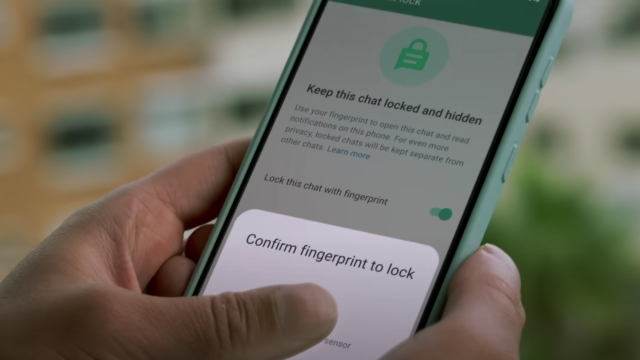The folks behind WhatsApp have a new feature to keep both pesky strangers or even close friends and family from peeking into your sensitive chats. On Monday, the company unveiled a new Chat Lock feature that separates your sensitive logs from prying eyes.
Meta announced that users can now select whether they want to lock any chat by tapping twice on any single or group chat and selecting the lock function. This hides the who, what, and when of the chat behind their own separate folder. Notifications still pop up, but locked chats now hide the message and who sent it. The locked chats don’t automatically appear on the main WhatsApp interface, and users need to scroll down on the inbox to get the separate folder to show up. Users can access locked chats either through a password or a biometric ID like a fingerprint.
In its blog post, the company said that Chat Blocks was for when a friend or family member is holding your phone for when somebody on an “extra special chat” sends you a message.
The feature also came with a video showing one man’s agonizing efforts to keep his family from seeing he’s been texting a significant other. Sure, it’s easy to imply some nefarious reason somebody would want to lock down certain chats, but anybody who doesn’t want to regularly explain to whom they were talking to and why, it does seem like a useful feature.
Meta said it would be adding more options for Chat Lock over the coming months including the ability to use a separate password for individual locked chats. This isn’t the first time the company has created the ability to lock down sensitive chats. The app created a proxy server earlier this year, allowing more users in countries that block the app to access the chat features.
This new feature doesn’t help deal with the fact that users can more easily still hijack a user identity if they also have access to a phone number. WhatsApp already has end-to-end encryption features, and it has argued it would need to leave the UK if the country passed its online safety bill.
